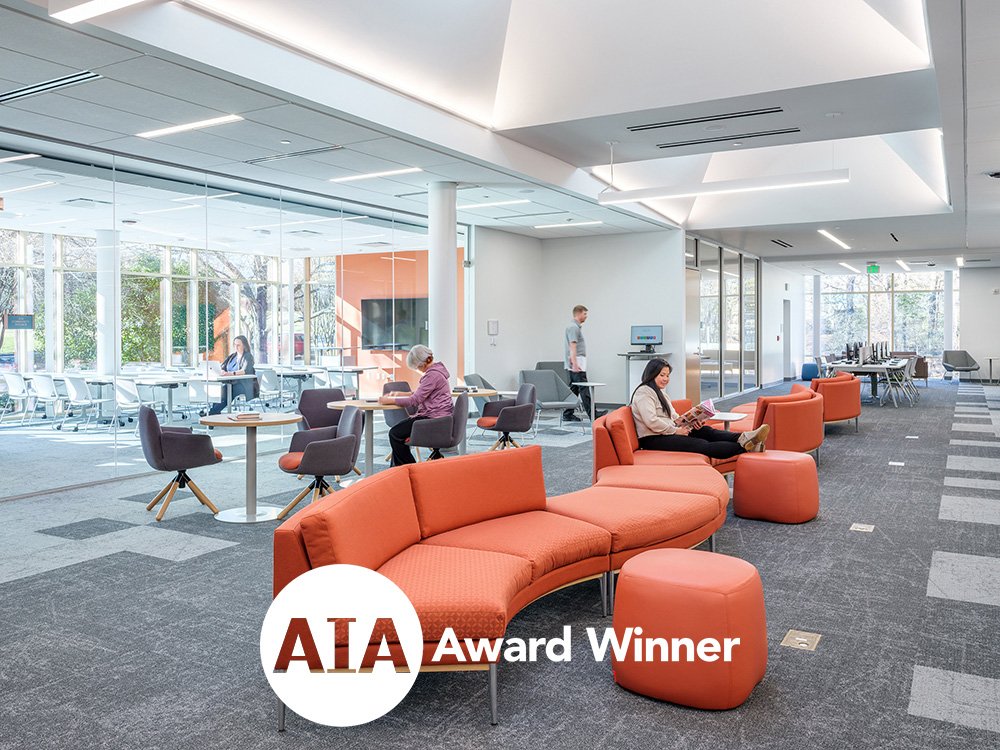Liollio Awarded 4 AIA South Atlantic Region & AIA South Carolina Design Awards
Mez Joseph
Liollio is honored to announce that the American Institute of Architects South Atlantic Region has recognized Liollio’s design of Richland Library St. Andrews and the SCPRT South Carolina Fort Mill Welcome Center with Honor Awards. The American Institute of Architects South Carolina Chapter also recognized Liollio with an Honor Award for Interior Architecture of the Charlotte Mecklenburg South County Library and a Merit Award for the design of the University of South Carolina-Beaufort’s New Hilton Head Hospitality Management Campus. Exceptional projects are the result of collaboration with visionary clients. Liollio congratulates Richland Library, the South Carolina Department of Parks, Recreation, and Tourism, Mecklenburg County, Charlotte Mecklenburg Library, the University of South Carolina-Beaufort, the University of South Carolina, and the Town of Hilton Head Island for four top regional awards.
“Richland Library St. Andrews was such a delight to get to review. The re-use and re-imagination of a former grocery store, the interior spaces that resulted, and two new insertions...made for a really well-thought out and lovely project.” − Jury comment
“(South Carolina Department of Parks, Recreation & Tourism’s Fort Mill Welcome Center) achieves noteworthy elegance on a budget-conscious public project. It’s simple form and materials are enlivened by an attention to details. The evocative use of local materials extends a tangible welcome to the State of South Carolina.” − Jury comment
“(Charlotte Mecklenburg South County Library) yields maximum impact from a tight economy of means. A few simple gestures fills the previously dark interior with warm daylight, punctuated with the skillful use of volumetric color. This project, bodily executed, reveals a conviction that interior architecture, at it’s best, is a spatial exploration.” − Jury comment
“(USC-Beaufort Hilton Head Island Hospitality Management Campus) leverages an unexpected interpretation of historical references that play out in an undeniably contemporary result in both form and materials.” − Jury comment



